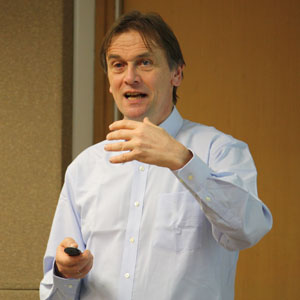Information
Venue
Start
End
30 January 2013 | CIL Seminar Series
Rulejungling: Challenges for the Justice Sector
 Introduction
Introduction
For most of the 20th century, the power to set rules was concentrated in the nation state. This changed when international organisations started to appear on the scene and international law started to generate rules which are designed to protect citizens and businesses. It changed even more dramatically in the age of globalisation. Now, all you need to create rules is a well-organised group of people and a website. Such a body can set rules for others and try to gain legitimacy, with rather minimal control by national parliaments.
Many of these new rules have the potential to make our lives more safe and prosperous. But international (public and private) rules have to be used and implemented in order to be useful for citizens. Here, we see two types of challenges:
1. The national state has to follow up on international rules. This may be resisted by national authorities, both in the executive or in the judiciary.
2. The new ways of making rules may also cause widespread distrust among the population. Communities want to govern themselves. Ever more rules coming in from the outside sharply contrasts with this desire.
HiiL, a research and advisory institute specialized in innovation in the justice sector from The Hague, evaluated the new rulemaking environment. Based on a review of the literature, on 9 major research projects and on the knowledge embedded in HiiL’s own international rule of law networks, it issued a Trend Report on Rulejungling published in November 2012 (see www.hiil.org/publications/trend-reports). HiiL focused on transnational private rulemaking by networks of companies, national regulators and other stakeholders and on informal rulemaking by government agents.
The Report addresses the following issues:
- Are rule of law values guaranteed in this new setting for rule making?
- Do the new forms of rulemaking decrease or increase the probability of what economists call regulatory failure and regulatory capture?
- What can we say about impacts and fairness of outcomes?
A panel of experts and innovators from all over the world met in The Hague on 1 & 2 November 2012. In interactive sessions, they evaluated the situation on the basis of the HiiL Trend Report. Together, they confirmed that innovation is needed. They prioritised four major challenges.
In this seminar at NUS, Prof Barendrecht presented the highlights of the Trend Report. Then the participants explored to what extent these trends and challenges are relevant for Asian legal systems.
Presentation
To download Prof Barendrecht’s presentation in PDF format, click here.
About the Speaker
Prof Maurits Barendrecht (1956) grew up in The Hague, the city of peace and justice. After studying Physics and graduating from Leiden Law School, he practiced law at De Brauw Blackstone Westbroek, a leading Dutch law firm (1982-1997). He became a partner in this firm, practicing in litigation before the Dutch Supreme Court, intellectual property, labor law and public interest litigation.
Over the years, Maurits developed an itch that litigation and the civil justice were not really serving justice needs. Gradually, he became disappointed by the power of civil law and human rights to bring order in relationships between people and solving conflicts. This led him to study other types of rules, which provide an important – but little studied – element of dispute systems: objective criteria, simple rules of thumb that can be used to solve distributive issues. This is the area where he obtained his PhD (cum laude).
Since 1992, he is professor of Private Law at Tilburg University. Maurits studies dispute systems (legal procedures, negotiation processes, ADR, informal dispute mechanisms) from an interdisciplinary perspective. He systematically looks for knowledge from economics, psychology, organisation theory, negotiation theory, and conflict studies that may be integrated with best practices, in order to improve dispute systems so that they serve the interests of the people that rely on them in a better way. His research takes places within Tisco (Tilburg Institute for Interdisciplinary Studies of Civil Law and Conflict Resolution Systems), see www.uvt.nl/tisco and now within the partnership with HiiL Innovating justice.
Barendrecht has lead several large scale innovation projects in the realm of justice and governance, which directly address urgent justice needs which are difficult to cope with through existing legal arrangements. These interactive research and development projects usually take place in cooperation with stakeholders such as client groups, ministries of justice, the judiciary, or those involved in the supply of legal services. To give some examples of innovations that took place under his leadership: – European Civil Code Project, now part of the draft Common Frame of Reference for European Contract Law, – Code of Conduct for Settling Personal Injury claims, – Making the Law Work for Everyone 2008, Report Working Group I on Access to Justice, – Internet applications for legal advice and online divorce, – The Innovating Justice platform, which connects justice sector innovations and innovators from across the world.


